Join MUNUC
HELLO PROSPECTIVE MUNUC MEMBERS!My name is Dan Rowe and I am the Chief of Staff for MUNUC 33. We are really excited that you are interested in joining MUNUC, and we look forward to seeing you at our recruitment events and meetings. Below you will find additional information about MUNUC: our mission, our programs, and how to join us. If you have any questions or would like to learn more about ways to get involved, please feel free to contact me at cos@munuc.org. If you’re interested in receiving emails from MUNUC, please feel free to put in your information to the form below. If you sign up before O-Week, we can send you a free MUNUC laptop sticker, or you can pick it up when you get to campus! |
Recruitment Events
Coming soon!
Apply
Applications for committee and administrative roles will go live during O-Week. In the meantime, if you have any questions, please feel free to contact Dan at bit.ly/joinmunuc. For all moderator applicants, this application is due by Tuessday, October 10th at 11:59 PM. For all other applicants, this application is due by Friday, October 12th at 11:59 PM. If you are applying to be a moderator, you must also sign up for a short, 10 minute interview. The sign-up sheet is located outside the MUNUC office in the basement of the Reynolds Club, Suite 002B. If you have any questions or concerns in the meantime, please email Jein Park at cos@munuc.org.-->
Our Philosophy
The Model United Nations of the University of Chicago (MUNUC) is an international affairs and education-centered RSO on campus. Now in our 33rd year, we host an annual conference for more than 3000 high-school delegates and 320 faculty advisors at the Palmer House Hilton in downtown Chicago.
Since our founding in 1988, MUNUC’s purpose has been:
- To educate high school students in the arts of debate, negotiation, and public speaking by providing a forum in which they can hone their skills.
- To introduce high school students to the fascinating realities and complexities of international relations through simulation of international organizations.
- To demonstrate the potential of the United Nations in resolving international problems while demonstrating its limitations.
MUNUC comprises 200+ students of all majors. Absolutely no experience is required; many members had never even heard of Model UN before they got here! All the same though, students often discover that helping make conference happen, teaching delegates, and joining a close community are formative parts of their college career.
Accessibility is important to us. Your commitment to MUNUC is for an hour a week through February, and the weekend of conference, which is April 22-25. If you want to be more involved as many choose to be, there are additional opportunities too. Your experience should also be cost-free: the cost of your involvement in conference and our auxiliary initiatives, local and international, are covered by the organization.
Conferences
MUNUC Chicago
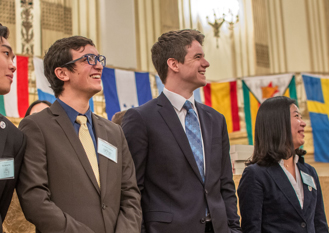
MUNUC 33 will be our 33rd annual conference in downtown Chicago. This year, our in-person conference will take place from Thursday, April 22nd to Sunday, April 25th. Each year, nearly 3,000 high school students and advisors descend on the Hyatt Regency Chicago in addition to our 200-plus members. For four days, the Hyatt becomes a center of international debate for these students, and within each of our committees they assemble coalitions, respond to crises, and draft resolutions. Each committee is led by UChicago students — you!
Conference is a large, intricate operation that takes nearly a year to plan, and with roles available on the committee and business sides. Take a look at the Roles You Can Fill as a First Year section for more info!
Additionally, because of the ongoing COVID-19 pandemic, MUNUC will be hosting an online version of our conference from Thursday February 4th through Sunday, February 7th. Participation in MUNUC Online is not required, but certainly encouraged; all participants will be invited to an exclusive banquet that Sunday evening and will receive a special gift!
Each conference is a large, intricate operation that takes nearly a year to plan, and with roles available on the committee and business sides. Take a look at the Roles You Can Fill as a First-Year section for more info!
CHPMUNC
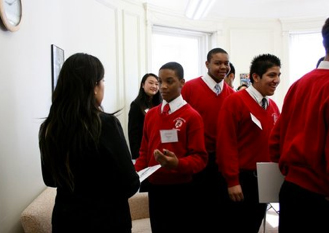
Chicago Hyde Park Model United Nations Conference (CHPMUNC) seeks to bring Model UN to students on the South Side of Chicago who might otherwise not have exposure to the activity. MUNUC members go to schools around Hyde Park and host after-school classes that help high-schoolers build confidence and skill in public speaking and research, and establish a foundational knowledge of world affairs.
MUNUC Abroad
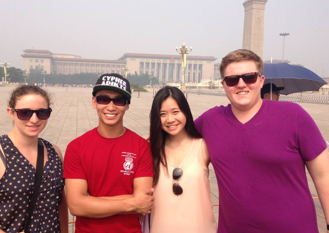
MUNUC sends around dozens of students overseas in the summer on all expenses-paid trips to run our programs in China, which include conferences and teaching opportunities in a variety of Chinese cities, usually at least four per year. Also, MUNUC is always pursuing additional international partnerships, meaning that even more opportunities around the world will become available as the year progresses. These are all exceptional chances to go abroad, foster deep bonds with your MUNUC friends, and work with students from vastly different backgrounds.
Fundamentals
Community
MUNUC is just not a conference, but a community. People who work at conference together often become close friends, and those relationships grow to extend beyond MUNUC, too. We host a number of social events throughout the year for you to get to know members across the organization, including weekly study breaks, bubble-tea socials, and committee dinners, as well as a jam-packed social program during conference weekend.
MUNUC prides itself on being able to offer great social experiences to all of its members, regardless of financial situation. Transportation, food, and other expenses are paid for by the organization in full, and we work to ensure that every activity of ours is accessible to as many members as possible.
Leadership
There are few places on campus where you can take on a leadership role on par with what MUNUC can offer. Whether you are an Assistant Chair helping students, a Chair overseeing hundreds of delegates, or a member of ExCom coordinating with your peers to make conference happen, the ways for you to take on significant responsibility are unparalleled. You’ll grow as a leader through MUNUC in ways that you could never learn in the classroom.
Education
More than almost any other high school MUN conference, MUNUC places its emphasis on education, to the point that the unofficial motto of our organization is “pedagogy”. Our goal is to help delegates develop their skills, both more practical and more abstract. Participation in MUNUC improves delegates’ abilities to debate, negotiate, compromise, analyze policies, and think critically about the major problems facing the world today. It is only through our amazing staff that we are able to offer this opportunity to delegates.
We seek a competition of ideas, not a competition of personalities. We take pride in creating a memorable experience for our delegates, and hope for them to leave our conference more confident, mature, and understanding of the world around them. And because we believe that cost shouldn’t be a barrier to education, MUNUC sets our fees lower than any of our peer conferences and offers substantial need-based financial aid.
Opportunity
Whether it’s through the weekly trainings, our summer programs where you travel overseas with your peers, or a leadership role, you’ll be able to develop valuable personal and professional skills through this organization. And if you need to juggle a busy schedule, we are flexible on that too; you can be a full member of MUNUC and reap all of these benefits with a base commitment of just an hour a week.
Roles You Can Fill as a First Year
ADMINISTRATIVE STAFFER
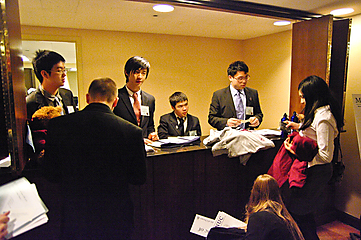
Prior to conference, Admin Team members primarily assist with preparing conference materials. Admin members also receive extensive training on business communication and other professional skills necessary to represent MUNUC to advisors and delegates. Finally at conference, the Admin Team runs Delegate Services, the hub of MUNUC, where attendees come to register, buy merchandise, and report any and all crises. Additionally, Admin Team members have the opportunity to assist Deputy Directors and members of ExCom with a huge variety of special projects throughout the year. The Admin Team is divided into an Administrative Staff and a Technological Staff. The Tech Staff works closely with the Admin Team on the behind-the-scenes tasks before conference. For MUNUC 33, this includes work on taking and editing videos and other media. MUNUC produces training content for delegates around the world, and the Tech Staff will help to implement this. Additional tasks include helping to maintain the MUNUC website, and for the first time ever, app development for MUNUC 33’s conferences.
TRADITIONAL-SIDE ASSISTANT CHAIR
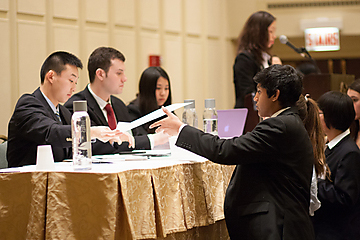
Assistant Chairs are an important part of all traditional committees, handling a wide range of responsibilities. Under direction of committee executives, traditional-side ACs help engage students in the discussion and work with them on writing resolutions, facilitating negotiation between blocs, and answering questions. Perhaps most importantly, ACs take notes during committee sessions in order to give feedback to interested delegates, helping them to improve their skills. In short, ACs function as the eyes and ears of the committee, and work closely with delegates directly.
CRISIS ASSISTANT CHAIR
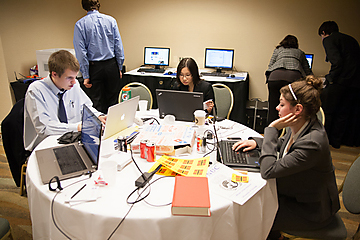
Crisis ACs work under the direction of the Crisis Director of their committee, supplying the delegates with a steady stream of updates and responding to queries and directives from individual delegates. Because of this, there is a lot of room for creativity for Crisis ACs during committee. Frequently, a Crisis AC will also be present in the committee room to assist the Chair, monitor communication between the rest of the team and the Chair, and give expert speeches to delegates.
MODERATOR

The Moderator maintains order and supervises debate in a traditional committee. While the Chair is responsible for all substantive matters, the Moderator handles procedural issues and runs committee debate under the direction of the Chair. During conference, the Moderator will answer delegate questions, help direct debate, and encourage productive discussion of the topic.
Senior Roles in MUNUC
After your first year in MUNUC, even more opportunities become available. All of the above positions are open to any interested MUNUC member, regardless of year, but once you have the experience of conference, you can apply to run your own committee, designing the topics and implementing your ideas. Alternatively, you can apply for one of the Deputy Director roles, taking on the responsibilities of coordinating a large part of conference. After two years of MUNUC experience, you are free to apply for a position on the Executive Committee, which is the central body responsible for managing the whole conference.
EXPERIENCED ASSISTANT CHAIR (EAC) and ADMIN STAFFERS (EAS)
Returning Assistant Chairs, for either traditional or crisis committees, have the chance to return to a similar but more senior role the next year. Unlike a normal AC, an EAC, is able to join a committee during Spring Quarter, meaning that they can help the chair with some of the substantive content of committee. The EAC will also help their Chair or Crisis Director train the new staff, and generally takes more of a leadership role in committee. Returning Administrative Staffers are able to take on the role of an EAS. An EAS helps to train new members of the Admin Team, and is also able to choose administrative or tech projects to head up in consultation with the Deputy Director of Administration. MUNUC is an organization with many moving parts, and the EASs leverage their experience and skills to keep those parts moving.
CHAIRS

In brief, chairs run our committees. Each committee has a Chair who oversees all matters both substantive and procedural, and who coordinates and helps train the committee staff. They are also the primary authors of the Background Guide, the document that delegates use to learn about the issue to be debated. They work with Assistant Chairs, EACs, and Moderators to make sure they provide a rewarding committee experience for the delegates. Chairs are organized into USG-Groups, and will work with an Under-Secretary-General throughout the year to craft their vision.
CHAIR-LEVEL DEPUTIES
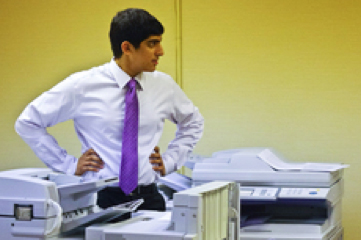
MUNUC’s administrative side is proud to have five chair-level Deputies who help coordinate a myriad of tasks both before and during conference. The Deputy Director of Administration helps the Chief Administrative Officer lead the Admin Team, and helps run Delegate Services during conference. The Deputy Director of Technology helps the Chief Technology Officer with technology issues and helps coordinate the Tech Staff. The Deputy Director of Delegate Training helps with delegate preparation, particularly through CHPMUNC, our Model UN preparation program for Chicago Public School students on the South Side. The Deputy Director of Branding is responsible for content development, corporate partnerships, and advertising matters, as well as helping to develop a consistent style for all MUNUC materials throughout the year. Finally, the Deputy Director of Communication manages MUNUC’s social media presence, and consequently has a huge role in helping to bring schools to conference and keep them excited and informed about all MUNUC events.
CRISIS DIRECTORS
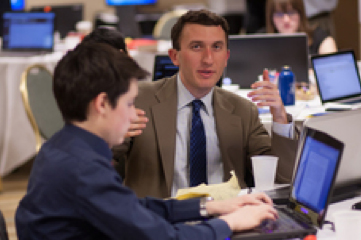
Crisis Directors are the “behind the scenes” leaders of committees with crisis elements. They work with a committee Chair to lead the delegates through the weekend. A Crisis Director oversees notes, writes the “storyline” or “crisis arc” for a crisis committee, and leads the Crisis Staff assigned to them. Often taking joy in throwing delegates into situations they didn’t expect—think assassinations and wars—Crisis Directors are fast thinking and creative.
EXECUTIVE COMMITTEE

ExCom is a group of 15 people who work year-round to coordinate this organization. Under-Secretaries-General oversee groups of committees, and are the guiding voice for committee matters. Our Member-at-Large and Chief of Staff oversee the general membership and are go-to contacts for everyone in MUNUC. Our Chief Financial Officer, Chief Administrative Officer, Chief Technology Officer, and Director of Outreach keep the organization humming along, and coordinate all the logistics of a conference of over 3,000 people. Our Chief Strategy Officer manages all international partnerships and programs. Finally, our Secretary-General and Chief Operating Officer oversee all aspects of the organization and conference. If you’d like to know more, check out the “ExCom” tab under “About.”
